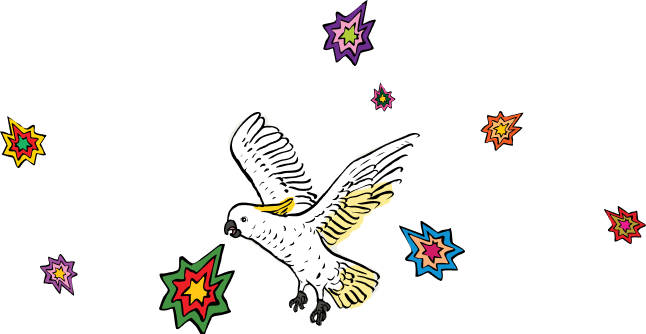Reviewed by: Verse Magazine
Settle in, mask up and compassionately engage with the newest production to inflame the hearth of the little quaint Bakehouse Theatre, entitled Call of the Malleefowl. A one act play that conveys a plethora of emotion and experience in the comforting time bracket of just under an hour, Call of the Malleefowl alights with a tale of identity and romance that surges like a fire for which you cannot turn away from.
Centring in on the events that play out over a distilled Adelaide winter, a bird watcher named Evelyn who resides on the Autism Spectrum, encounters a loud and compulsive woman named Frankie upon her Saturday visits to a spot known as The Lookout. The two form a unique bond that lends to their fantasies of a world beyond their city of origin and a relationship that defies their current livelihoods. Call of the Malleefowl’s greatest strength is in its delicately written character drama and eventual blossoming of a deep-rooted relationship. Actresses, Millie Montgomery and Genevieve Venning, encompass the characters of Evelyn and Frankie through both the quiet and the loud moments. Plucking page onto the stage, Montgomery, in particular, relies on the subtle art of facial expression and stillness to tell a tale beyond even the confines of the script. Simultaneously, Venning explodes with a magnitude of passion and richness that claims the stage as her own whenever she steps foot below the lights. The two actresses balance the perfect mix of the quiet and the loud, never stealing moments from the other or playing one another as competition; the two exist in the seconds, the mere fractions of time, that convey true character in its rawest form.
Writer, Charlie Kay, seemingly poured a great deal of genuine spirit into the script, crafting a narrative that never truly felt swayed by the interference of cliché or trope curses. The tale felt honest. It felt to the point and red raw. As a piece of writing seemingly inspired by Kay’s own experience as a woman with autism, never did the play manage to betray any genuine intention or false meaning. It was a story that knew its endgame and worked back from there. Not only did the play’s complete understanding of its identity help to fuel its confident production, but it also assisted in building sufficient foundations for a genuine mystery plot.
Not only did the narrative convey a heartfelt drama and intimate romance, but it also succeeded in its intention of structuring its story around an attentive mystery. Due to its interlacing of romance, drama and mystery, Call of the Malleefowl never sunk into a dull state. It moved quickly. With a brisk pace, it reached its conclusion at an almost perfect tempo. The direction from Kay and Lani Gerbi elevated the already heightened stage presence of the actors, the script and the general storytelling at play. Because of these two individuals, Call of the Malleefowl never felt too short or too long, nor boring or dull. It kept intact an unfathomable composition.
To also add to the long list of ingredients that made this production taste extra special, the stage design and costuming must be acknowledged for their achievements in bringing genuine character to the world. Below the flood flights, the stage existed in nature with eucalyptus leaves spread across the stage, a park bench positioned left of the centre and a soundtrack of willowing wind and bird songs. The evolution of the costuming for Frankie spoke just as much to the character as did the performance and writing. Similarly, Evelyn’s layered singular look asserted her character’s entrapment in a constant state of hopeful, but questionable, comfort.
Ultimately, Call of the Malleefowl fed into a powerful short tale on true love felt for others and one’s acceptance of themselves. An exciting entry in a growing pantheon of queer and disability produced art, Call of the Malleefowl is definitely one to catch in the final days of 2021’s Adelaide Fringe.




